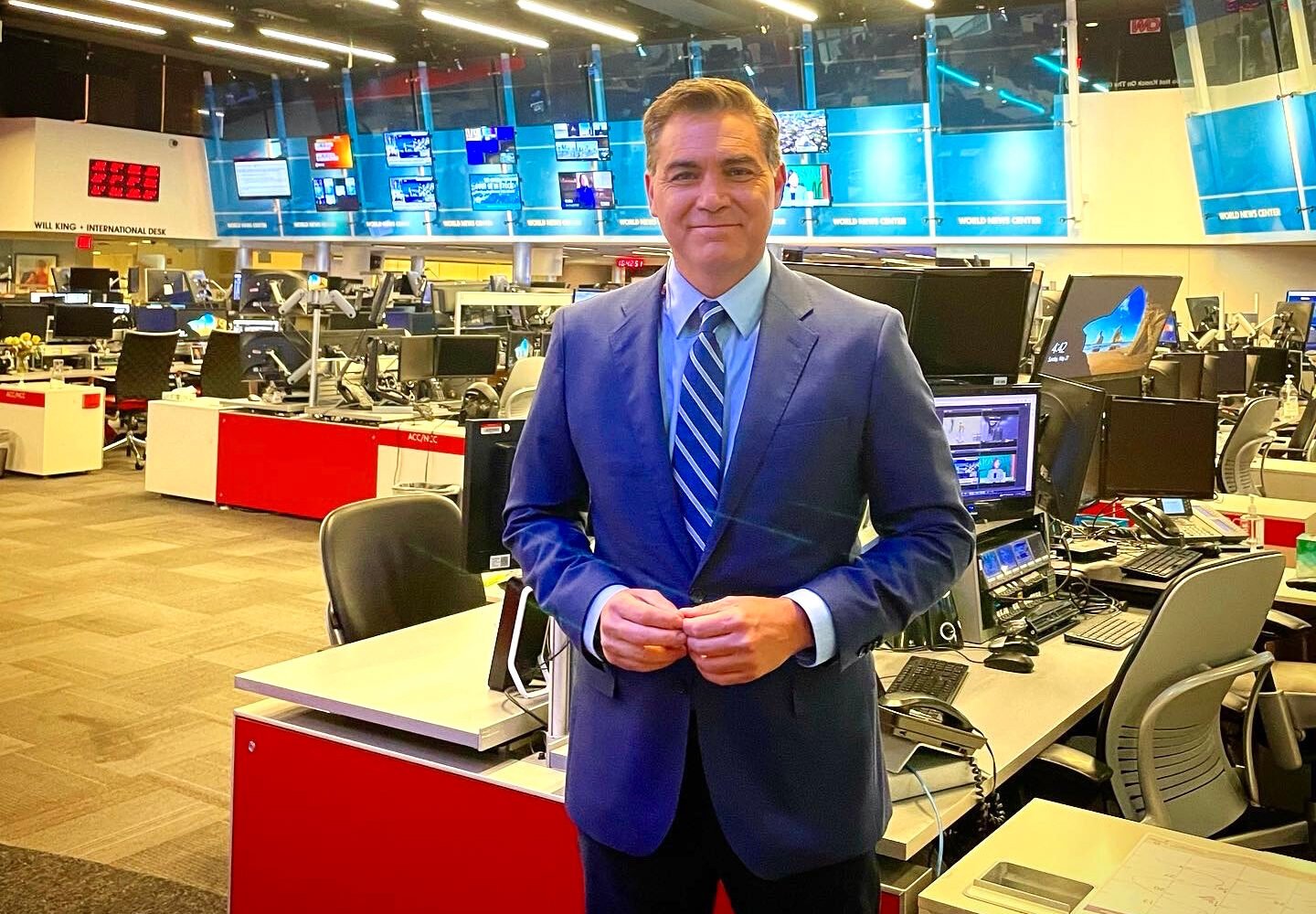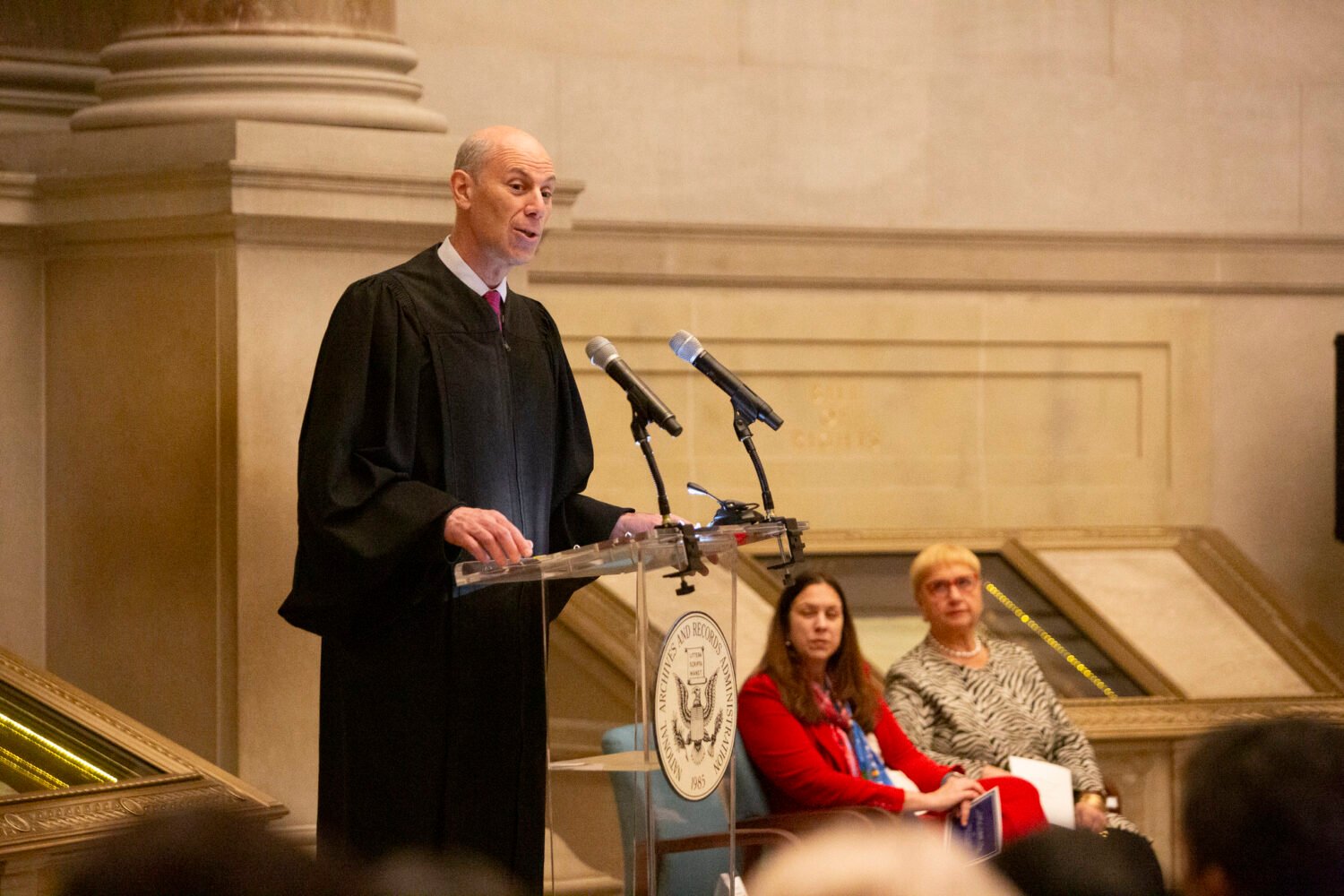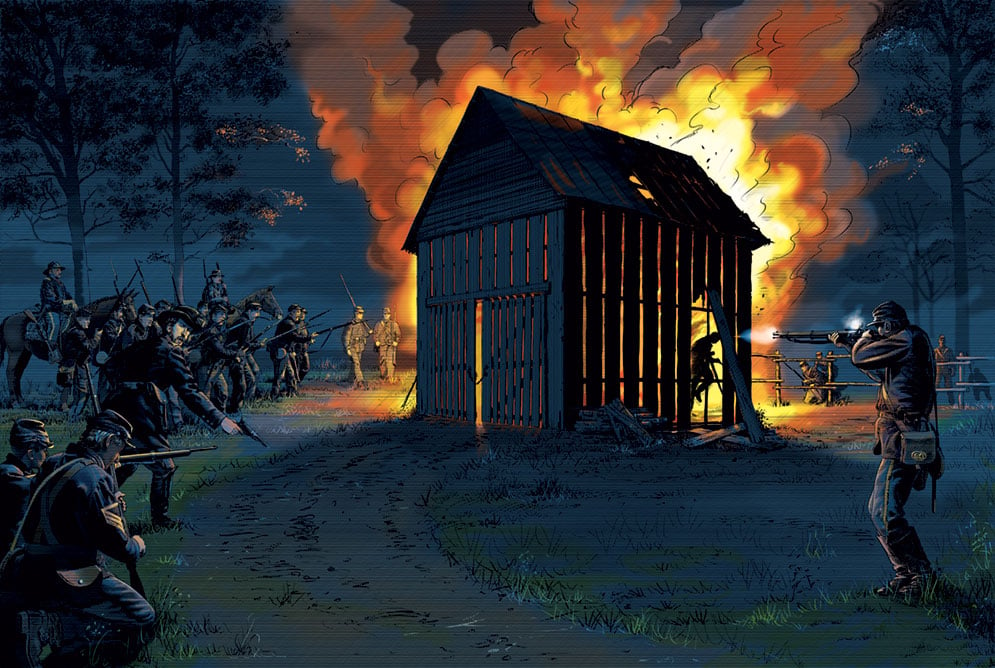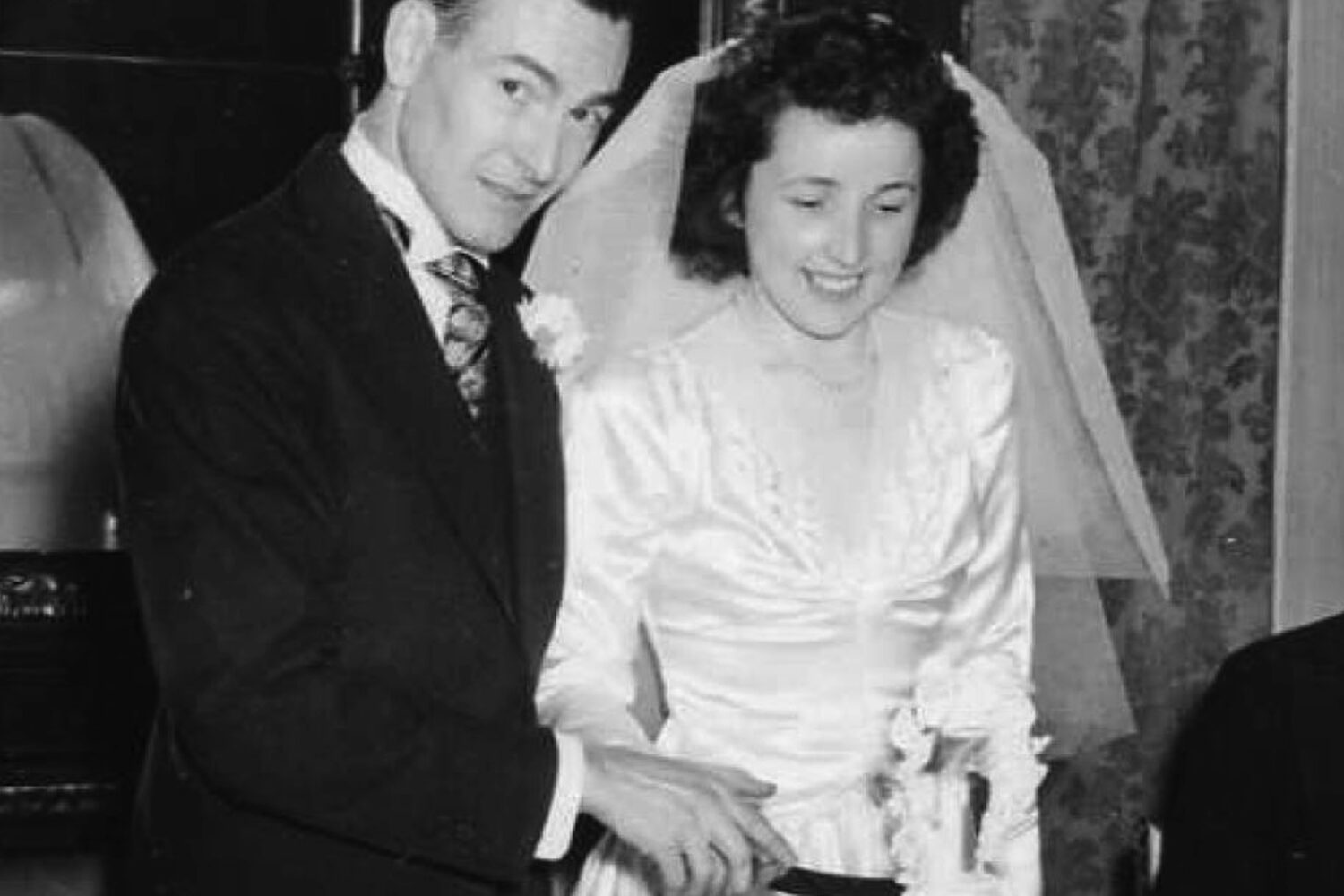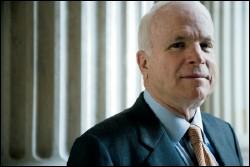
He had left Blair House early that morning to go to church, two churches in fact, Grace Reformed at 15th and O and then New York Avenue Presbyterian near 13th Street. The reporters doing live TV were still trying to figure it out—“I didn’t know McCain was particularly religious, Chris”—when a member of the new White House staff called and helped them out: One was the church of Teddy Roosevelt, and the other was the church of Abraham Lincoln. Two of McCain’s heroes. He had others: Thomas Moore, Lord Nelson, Joan of Arc, Julius Caesar, Colin Powell (his new secretary of State), Charles Darwin (how the creationists had howled about that one), Ted Williams, Mother Antonia, and Aung San Suu Kyi.
But this morning he wanted to feel close to the spirits of those two great men, two great presidents, two great Republicans, who represented two great ironies: The one who hated war had led his nation through its most terrible conflict, and the one who loved war a bit too much had served only in peace. McCain did not want to think about the ironies he might face.
He left Lincoln’s church in the chill morning air. The homeless people who lived in the little park in front of the church had been hustled away, and McCain made a mental note to make sure they would be let back in. He looked at the armored limousine idling at the curb, clouds of exhaust billowing from it, and the other 17 cars in the motorcade and then asked his wife, Cindy, if she would like to walk back. She nodded and took his arm, and they started down New York Avenue, the Secret Service scrambling to set up a new security perimeter. There was no real risk. The streets were empty except for law-enforcement officers and uniformed military. Passing Lafayette Square, McCain barely glanced at the mobile Patriot-missile launchers that now flanked the statue of Andrew Jackson. Ever since 10/31, nobody was taking any chances.
The church bells had begun pealing as they neared Blair House, and McCain thought what he always thought when he heard bells: the John Donne poem that gave a name to his favorite novel. He now repeated the words softly to himself: “Any man’s death diminishes me, because I am involved in mankind, and therefore never send to know for whom the bell tolls; it tolls for thee.”
A Secret Service agent had seen his lips move and hurried up to him. “Sir,” he said, “do you need anything?”
“No,” McCain said. Yes, he thought. A cigarette.
Mark Salter, his chief of staff, was waiting for him outside Blair House, a sheaf of papers in his hand. They were handwritten notes from the Democratic leaders who still controlled the Congress and who had spent a good part of the last year denouncing McCain as a dangerous warmonger who was sure to imperil the peace of the planet. Now their notes were effusive in their congratulations and their desire to work with him, praising his wisdom and deep sense of patriotism. “If hypocrisy were gold,” McCain whispered to Salter, “the Capitol would be Fort Knox.”
He didn’t really care what they had called him. In his life, had been called just about everything from a war criminal to a Keating Five crook. It did not matter. Few men looked forward as relentlessly as John McCain. It was what drove him. Besides, who cared what anybody had called him yesterday? In a few hours, they would call him Mr. President.
After his loss to George W. Bush in the Republican primaries of 2000, his staff had packed him off to Bora Bora for a vacation, thinking it would be a welcome relief from the rigors of campaigning. McCain hated every minute of it. He had gone from the nonstop adrenaline of the campaign to . . . nothing. “It was great, and then it just stopped,” McCain said.
When he had won his first Senate primary in 1986, the first call he made was to John Tower, his political mentor. Tower shared some advice with him, the same advice Tower’s father had given him when he won his first race: “Son, don’t let your shirttail hit you in the ass. Keep running.”
McCain liked that advice. And knew he would run again because he had faced that terrible dread that kept many from ever running: the humiliation of defeat. “I’m not going to be driven by a fear of losing,” McCain told his staff. “I’m going to have fun.”
It had started out that way. The Straight Talk Express 2.0 (which in an hour would be driven to the Smithsonian Institution and placed on exhibit) blasted through the countryside, crammed with reporters. Once again, McCain kept his staff far and reporters close. Part of it was tactical—when you give reporters the access they want, it is hard for them to hate you—and part of it was just McCain. He enjoyed the give and take, the challenge of answering question after question. The campaign was going to be about authenticity, John Weaver, his political guru, had said. And you couldn’t establish authenticity by hiding behind staff and rope lines. McCain answered questions until reporters could think of no more and lapsed into what became known as the Lightning Round.
Favorite word, a reporter asked him.
“Principle,” McCain replied.
Favorite dead hero.
“Julius Caesar.”
Favorite living hero, nonsports.
“Colin Powell, served his country, a wonderful man.”
Favorite ice cream.
“Blackberry.”
What kind of tree would you like to be?
“Cottonwood. They are really lovely. And when the wind goes through them, it makes a beautiful sound.”
Favorite music.
“Fifties and ’60s rock ’n’ roll.”
Favorite lazy-day activity.
“Going to a sporting event.”
First car.
“1958 Corvette.”
First job.
“Newspaper delivery boy.”
Favorite comic strip.
“Doonesbury.”
Favorite junk food.
“Doughnuts.”
Worst habit.
“Coffee.”
Favorite toothpaste.
“Listerine.”
Listerine makes toothpaste?
“Uh, Colgate.”
Mousse or gel?
“Spray.”
Favorite album.
“Songs for Swingin’ Lovers! by Frank Sinatra.”
Favorite song.
“Smoke Gets in Your Eyes.”
Favorite breakfast cereal.
“Raisin Bran.”
That’s George W. Bush’s favorite, too! a reporter said.
“Can I change to corn flakes?” McCain said, and the bus rocked with laughter.
Inevitably, somebody would bring up Vietnam, but, unless prompted, McCain would talk only about the lighter moments, the moments that kept them all sane, such as how, when imprisoned at the infamous Hanoi Hilton, he was the designated “movie teller” and had to describe the plots of about 100 movies to the other POWs over his 5½ years of captivity. “Of course, I didn’t know a hundred movies,” he said, “so I made a lot of them up.”
Few reporters realized how little he liked talking about Vietnam. He had shocked a reporter one day when he said he was “embarrassed” by and “bored” with the constant repetition of his Vietnam experience. “I mean, Jesus,” McCain said. “It can make your skin crawl.” Besides, he said, “it doesn’t take a lot of talent to get shot down. I was able to intercept an enemy missile with my own airplane.”
But to the public, Vietnam had made him a hero. Though Americans were still conflicted over the war, there was no conflict over the POWs. Many people had hated the war; nobody had hated the POWs. But as colleagues learned, if you wanted to stop a conversation, all you had to do was bring up Vietnam. “We lost,” McCain would say. “Let’s move on.”
His staff knew how powerful a political tool his story was, however. A story was not enough—John Glenn had a great story yet had never gotten to the White House. But used well, the Vietnam story was another arrow in McCain’s quiver. And it gave him the biggest applause line in every speech: “I fell in love with America,” he would say, “when I was deprived of her company.”
Some old soldiers neither die nor fade away. Some old soldiers run for president. As the 2008 campaign began, it had not looked, however, like a good time for old soldiers. The American public had tired of the Iraq war—the Democratic Congress had ended it in 2007 by refusing to fund it—and there was no greater defender of that war than John McCain.
“If we lose because of the war, then we lose,” Weaver had told the staff. There was no changing McCain on that one.
But in the terrible months that followed the departure of American troops from Iraq, McCain’s stance had not looked all that bad. He had warned that a sectarian bloodbath would follow US troop withdrawals, and it had. He had warned that the Kurds might declare an independent Kurdistan in the north and that Turkey might invade, and they had and it did. He had warned that the loss of Iraq would destabilize the entire region, and now the entire region was destabilized.
War was terrible and it took terrible sacrifice, McCain felt, and George Bush’s biggest mistake had been to fail to prepare the nation for the sacrifice of blood and treasure that war requires. You could not do wars halfway. If you had the courage to start them, you had to have the courage to see them through. “To have courage for whatever comes in life—everything lies in that,” McCain had told a reporter profiling him for Seventeen. “That’s a great line,” the reporter had said. “Is it yours?”
Almost, McCain had said with a smile. It’s Mother Teresa’s.
He had skipped Iowa in 2000 because he was against ethanol and agricultural subsidies and because it cost a lot more money to fly to Iowa than it did to New Hampshire, and he didn’t have a lot of money. It had paid off. He had beat George W. Bush in New Hampshire by 19 points, and the money began pouring in via the Internet. But his was a true maverick campaign, and like all maverick campaigns, it was prepared for everything but success.
He went into South Carolina without much of a plan. He would use the same enthusiasm and straight talk that he used in New Hampshire, which would surely be enough. But he ran into a buzz saw, the dirtiest primary campaign in modern times. Talk radio spread the whispers: McCain had infected his wife with syphilis, McCain had fathered a black child, McCain had been brainwashed in North Vietnam. George Bush denied any knowledge of what was taking place. The McCain team looked dazed and confused, and McCain knew he had lost when the crowds dropped away.
He never complained to his staff about South Carolina, never blamed anybody but himself. But it would not happen again, John Weaver vowed. They would never let an opponent up off the mat again, not if they had to stand on his windpipe to do it.
When McCain ran in 2000, his operating principle had been the same one that he used when he would lower himself into his jet: “Kick the tires and light the fires. To hell with the checklist. Anybody can be slow.”
In 2008, they would be slow. And methodical—raising the money, building the organization, lining up the old guard and appealing to the new. McCain could not be kept from the press, and the campaign would have to deal with that. After eight years of a president who had been packaged and sold to the public by political professionals, the people wanted authenticity. No packaging, no slickness, no hiding behind rope lines. McCain was the candidate who was real, flaws and all. If he said something, he said it because he believed it and not because it had been polled and focus-grouped (though the campaign used polls and focus groups).
Accusations that he had moved to the right and changed his positions to gain the nomination were the only accusations that still bothered him. “I’d like to tell you that I have a real thick skin because I’ve been in politics for a long time,” he said. “But I don’t.”
He had to run in Iowa this time because he was the front-runner, and front-runners have to run everywhere. The pundits expected him to lose Iowa. Social conservatives dominated the Republican caucus, and Mike Huckabee of Arkansas and Sam Brownback of Kansas had those voters tied up. Besides, McCain still refused to cave on agriculture subsidies. But McCain’s Iowa staff pointed out that the previous five contested Republican Iowa caucuses were won by George W. Bush in 2000, Robert Dole in 1996 and 1988, George H.W. Bush in 1980, and Gerald Ford in 1976. And the social conservatives hadn’t liked any of them.
As it turned out, Huckabee and Brownback split the social-conservative vote, and neither got a good ticket out of Iowa. It was McCain in first, Mitt Romney second, Huckabee third, Brownback fourth, and Rudy Giuliani a distant fifth. Giuliani just didn’t play well away from New York. He would drop out after New Hampshire, deciding that being a national hero and making lots of money were preferable to answering questions from reporters about former police commissioner Bernie Kerik. And so the curse held: No elected New York mayor had ever gone on to higher office. Though most New York mayors felt there was no higher office.
McCain caught a break when the Republicans decided to go along with the Democrats and make Nevada the next stop on the campaign trail. Nevada was, as McCain pointed out, just across the Grand Canyon from Arizona. And Hispanic voters had not forgotten McCain’s championing of a guest-worker program (which Congress had still failed to pass). McCain took Nevada. But New Hampshire was still where campaigns were made or broken. And New Hampshire loved John McCain.
Authenticity, that is what his campaign pounded on. Even if you didn’t like everything McCain said, you knew the guy was real. Mitt Romney? Mitt Romney was so slick, he could run across the keyboard of a piano and not sound a note. “Mitt Romney is a chameleon,” a McCain staffer told the Union Leader. “You put Mitt Romney on a plaid rock, and he’ll turn plaid.” Still, Romney came from bordering Massachusetts and looked presidential and sounded presidential, and he came in a strong second. Too strong a second.
Romney had to be stopped, and South Carolina would be the stopping place. The whispering campaign that had been directed against McCain in 2000 was now directed against Romney. Conservative talk radio was filled with tales of Romney’s love for gay people and how he was a secret polygamist. And not just with two wives—try five. And three of them under 16 years old! It was all madness, but madness had played in South Carolina before.
McCain denounced the whispering campaign and was confident his staff had no part in it, but when South Carolina was over, Romney lay gasping on the mat. Even Romney’s subsequent win in Michigan was not enough to revive his campaign. The party rallied around McCain.
The public was paying little attention to the Republican primaries, however. The real show was on the Democratic side. Barack Obama and John Edwards were engaged in a mad dash to flank Hillary Rodham Clinton to the left. (There was no point in trying to flank her to the right; if you flanked her to the right, you were a Republican.)
The calendar favored Edwards: He took Iowa, where he had finished a strong second in 2004; won Nevada, where the labor unions loved him; lost New Hampshire to Clinton; took South Carolina and lost Michigan to Obama and then New York to Clinton.
But while Republicans had a winner-take-all rule in which the winner of each primary got all the delegates at stake, the Democrats divided up the delegates among the top finishers, which guaranteed a long, bruising fight in 2008. Edwards didn’t need to win every primary; he just needed to win enough of them and come in a consistent second in the states he lost.
There had not been a deadlocked convention in America since 1952, when it took Democrats three ballots to nominate Adlai Stevenson, but in 2008 the TV networks finally got what they wanted: a political convention where the outcome was not known in advance. Deadlock in Denver! was the logo every network used.
Early in the morning of August 28, 2008, after an incredible 15 ballots, Hillary Clinton pledged her delegates to Edwards on the condition that he choose Obama as his running mate. It was a selfless act. Now she knew she would become a figure like Ted Kennedy, an important voice in her party and a good senator but never again a national candidate. Walled off by her staff, she had never been able to connect with voters. She had never seemed real.
McCain thought Edwards/Obama was a strong ticket for the Democrats, but it was the independent candidacy of Mayor Michael Bloomberg of New York that worried him most. Though Bloomberg had no chance of winning, he could drain independent and Republican votes away from McCain. In Weaver’s doomsday scenario, Bloomberg could keep both McCain and Edwards from getting 270 electoral votes, throwing the election into the House of Representatives, where the Democratic majority would make Edwards president.
But Bloomberg found life on the road unpleasant, forced to answer countless questions about process—“How do you expect to win, Mr. Mayor?”—rather than on the issues he believed in. When he failed to reach 15 percent in the polls and, therefore, was not invited to take part in the presidential debates, he stopped active campaigning and ended up with the same number of electoral votes Ross Perot had achieved in his two runs: zero.
It was wild out there for a while. “Everybody is running for president,” Joe Biden had joked on his campaign plane a week before the Iowa caucus. “A Jew, a woman, a black, a Mormon. It’s getting like the bar scene in Star Wars!” It seemed funny at the time, and most of the reporters representing the old media on Biden’s plane knew he had a pointed sense of humor and made nothing of it. After all, in July 2006, Biden had said, “In Delaware, the largest growth in population is Indian-Americans moving from India. You cannot go to a 7-Eleven or a Dunkin’ Donuts unless you have a slight Indian accent. I am not joking.” He had gotten away with that one—“The point Senator Biden was making is that there has been a vibrant Indian-American community in Delaware for decades,” his spokesperson had said—but in presidential politics there are few second chances.
A blogger on the Biden plane caught Biden’s Star Wars joke on videotape; it was on YouTube 12 minutes after the plane landed and all five networks in two hours. In high-def, no less. The next morning, an ashed-faced Biden withdrew from the race, even though Bloomberg, Clinton, Obama, and Romney had come to his defense. “Perhaps it was without real humor,” Obama said of the joke, “but it was also without real malice.”
It did not matter. In 2008, the stakes were too high. The 24-hour news cycle had become superheated by the Internet, and no mistakes were allowed. “A flawless campaign,” Weaver told the staff. “That is what we will need to win. Candidates can have flaws; they are human. But the campaign must be perfect.”
Roger Ailes had invented the theory when he was George H.W. Bush’s media adviser in 1988, and he gave an interview to Advertising Age that year in which he said that political consultants could make ads better than advertising people, that he could sell products like Oreo cookies better and faster than ad guys could.
Is there a difference between a product and a candidate? the reporter asked.
“There’s an enormous difference between cookies and candidates,” Ailes said. “Cookies don’t get off the shelf and hold news conferences or make gaffes or go on Meet the Press.”
And from then on, the game became keeping the candidate on the shelf, as passive as a box of cookies. Because as any political consultant could tell you, the most dangerous person to the candidate was the candidate himself.
McCain’s gaffes had been notorious; all you had to do was ask him. He loved to regale reporters with the time he referred to the Leisure World senior citizens’ home as “Seizure World” and the time he said “the nice thing about Alzheimer’s is you get to hide your own Easter eggs,” and then there was the national eruption he caused with a joke that went something like, “Why is Chelsea Clinton so ugly? Because Janet Reno is her father.” (McCain apologized to the Clintons for that one, though he never apologized to Reno. He didn’t like Reno.)
“I have been guilty of foot-in-mouth disease all my life,” McCain said.
“He is authentic,” his press secretary said whenever a gaffe hit the news. “He sometimes says things he regrets. Just like a real person would.”
“Many of the independents and even Democrats who are supporting you have no idea how conservative you really are,” a reporter said to McCain at one of his daily news conferences.
“Done a hell of a job fooling them, haven’t we?” McCain said.
Weaver cut the news conferences down to weekly.
But the public liked McCain’s answers. They seemed real. He seemed real.
There was a little problem, however. Bill McInturff, McCain’s pollster, had said before the campaign began, “Along with the Republican base, McCain has the potential to put together a 55- to 58-percent majority in a
general election because of his appeal to swing voters.” But the numbers McInturff was getting in mid-2008 were nowhere near that. McCain was barely staying ahead.
The trouble was that Edwards and Obama were photogenic, articulate, passionate, vigorous, and young. And it was more than that: The nation was tired of old wars and scared of new ones. Edwards, aside from championing universal healthcare, increased taxes on the rich, and other Democratic oldies-but-goodies, was vigorously antiwar. Edwards’s biggest applause line was the one he tried out on the day he announced and had used in every speech since: “It’s time for us to ask Americans to be patriotic about something other than war.”
Going into October, the race was tied. And then came the day that once was known as Halloween and forever afterward was called 10/31.
Timothy Roop, 58, was overweight, nearsighted, and a jewelry salesman. Nobody had ever accused him of doing anything heroic. When he left work in downtown St. Louis on Halloween night, his sample case was next to him on the front seat of his Chrysler minivan as it always was. Buried inside the case somewhere—under the earrings maybe—was a Smith & Wesson 17-shot Sigma 9mm pistol that he had never used and did not even like to touch. His company required him to take it with him whenever he transported jewelry in his car and had paid the $100 fee that made carrying a concealed weapon legal in Missouri.
He was hurrying home to Clayton so he could relieve his wife of trick-or-treat duty at their front door—Roop loved seeing the kids in their costumes—but he looped past the Gateway Arch on his way home, because he loved how it glistened in the moonlight. It made him proud to be a St. Louisan, proud to be an American.
The blast was heard 30 miles away. A cloud of pulverized concrete rose 100 feet in the air. At the base of each leg, the arch was reinforced concrete in a stainless-steel skin, and now a piece of that skin measuring five feet long and two feet wide came skipping across the grass like a stone skipping on water, slicing off the top of Roop’s Chrysler as neatly as a surgeon’s scalpel would. “How come they don’t make convertible vans?” Roop remembered thinking. Funny, the things that come to your mind preceding a state of panic. But panic was not the same as paralysis in the case of Timothy Roop, and he forced open the van door and staggered out onto the street, clutching by sheer force of habit his sample case.
The rest was a blur: Four figures in ski masks running from the base of the arch, jumping into a waiting car, Roop caught in the high beams as the car fishtailed toward him across the grass. He didn’t remember reaching into his sample case and fumbling for the gun. He didn’t remember tearing off his thumbnail switching off the safety catch, but he remembered the shots he fired directly into the headlights. The gun jammed after the fourth round (Roop had not cleaned it in ten years), but the fourth shot entered the hood of the car, ricocheted off the engine block, went through the windshield, entered the driver’s head just under the chin, and buried itself into his brain. The car veered sharply to the left, struck a tree, and came to rest.
The US Park Police were only seconds behind it, quickly surrounding the car and capturing the remaining terrorists. The police also almost shot Timothy Roop, who was still standing there as if rooted in place, his smoking 9mm in one hand and his dangling sample case in the other. “Don’t shoot,” Roop shouted, “I sell jewelry!” (He would later admit on The Late Show With David Letterman that this didn’t really make any sense to him, either.)
Then, with the smoke and concrete dust clearing, they all stared at the arch, impossibly still suspended in the air even though its southern leg now no longer touched the ground, six feet of steel and concrete having been blown away. It was a tribute to the architectural genius of Eero Saarinen or to the power of God—take your pick. (St. Louis would never repair the arch, preferring to leave it as a symbol of the indomitable spirit of the American heartland. The elevator rides to the top were, of course, discontinued. When the prairie winds were high, the arch would vibrate like a tuning fork and emit a low, ghostly tone. Every few years scientists would publish articles in journals proving that the arch could not stay up on one leg, just as bumblebees could not fly and curve balls were an optical illusion.)
Though the nation was stunned—there was no loss of American lives this time, but terrorists had struck deep inside the country—the political upside to McCain was obvious. Not only was he running as a strong, mature leader who could protect the nation, but his progun stance now seemed more justified than ever by the actions of America’s newest action hero, Timothy Roop.
The public was told nothing about who the terrorists were except that, to the dismay of the Minutemen guarding the Mexican border, they had entered the United States from Canada.
Two days after 10/31, as it was now universally called, House speaker Nancy Pelosi went on Meet the Press and told Tim Russert that she intended to launch a congressional investigation into this “October surprise” and find out whether the Bush administration was complicit in the attack in an attempt to boost the chances of John McCain.
When John Edwards and Barack Obama heard that, they emitted their own low, ghostly tone.
McCain carried every state George W. Bush had carried in 2004 plus California, Minnesota, and New Hampshire. Democrats actually picked up seats in the House and Senate, as if Americans were sending the message that they wanted a Republican president to protect them but with a Democratic Congress to restrain him.
McCain had little time to celebrate. He dropped out of sight after his victory rally—dealing with a little laryngitis, his staff had told reporters when he was absent at his news conference the next morning—and was secretly flown by presidential jet from Arizona to Washington through a teeth-rattling thunderstorm that had closed commercial airports up and down the East Coast. McCain dozed off as soon as he buckled in but awakened to find his fellow passengers gripping their armrests in terror as the plane hurtled through the thunderclouds and great flashes of lightning lit the interior. He had personally crashed four planes, he told them, and knew whereof he spoke. “Don’t worry,” he said. “Nothing is going to happen. I’m going to die in bed.” Then he went back to sleep.
Early in the morning, President-elect McCain found himself in the White House Situation Room in the West Wing basement, watching a sound-and-light show being put on by the national-security adviser.
The terrorists had been trained in Somalia and transported to the coast of China in a Soviet-built Golf-class submarine, one of ten sold to North Korea for scrap in 1993. The four had made their way to Shanghai and with false passports, visas, and travel papers had bought commercial-airline tickets to Vancouver and then easily traveled by ferry to Seattle. Nothing more was known about them.
McCain went upstairs to the Oval Office to receive congratulations from a grim President Bush. Bush said he was ordering a missile strike against terrorist training grounds in Somalia, but both he and McCain knew this would not solve the problem. All the serious questions remained: Had the government of North Korea transported the terrorists to China? The North Koreans denied all knowledge; officials said the country had sold the submarines years ago but would not say to whom. So the possibility existed that al Qaeda now owned a missile-firing submarine.
The possibility also existed that the United States would have to invade and secure Somalia and take action against North Korea. President Bush offered to take the burden on himself and do what was necessary before McCain was sworn in. “After all,” Bush said, “I don’t think my approval ratings could go any lower.” But McCain declined. It would not be right, he said; it would not be honorable. The people had elected him, and he would do what was necessary.
“Never send to know for whom the bell tolls,” he said to himself as he left the Oval Office. It tolls for thee.
. . . and defend the Constitution of the United States, so help me God.
President McCain lowered his right hand and took his left hand off his grandfather’s Bible. “So help me God” wasn’t in the Constitution, but it had been good enough for George Washington, and it was good enough for him. The Marine Band struck up “Ruffles and Flourishes” and then “Hail to the Chief.”
Tim Pawlenty, former governor of Minnesota, had taken the oath before McCain, becoming at age 48 the third-youngest vice president in US history after John Breckinridge at 36 and Dan Quayle at 41. Having a young vice president wasn’t a bad thing when you were 72 and the oldest president in history, McCain decided.
He now walked slowly to the lectern and looked out at the thousands gathered before him. He began to speak. Later, few would remember how his inaugural address began, but all would remember how it ended.
“Not all of us will bear arms for our country,” McCain said. “Our country’s success does not depend on universal heroism. But we have to be worthy of the sacrifices made on our behalf. We have to value our freedom. We have to love it. We have to love it so much that we will not let it be constrained by fear. It is love, then, that makes courage necessary. It is love that makes courage possible for all of us to possess.”
The wind blew across the Mall, up the west steps of the Capitol, and ruffled the thin white strands of McCain’s hair. For the briefest of moments he thought of the sound of cottonwood trees. Then he reached into his pocket. Like many pilots, he was superstitious—he could not stand to see a hat on a bed, for instance—and during most of the campaign his pockets had been filled with little charms that people had given him: coins, tiny horseshoes, rabbits’ feet (which, as he always pointed out, had not been very lucky for the rabbits).
Today, he carried but one talisman with him: the dog tags of Lance Corporal Henry Lee Otis, 23, of Ottumwa, Iowa, the last GI to die in Iraq. Henry Lee’s mother had driven five hours to see McCain speak in Lime Springs, Iowa, near the Minnesota border, during the campaign. She had waited for him along the rope line after he finished his speech and pressed the metal tags into his hand. “Do not let another mother’s son die in a war we are not willing to win,” she said and turned and walked away.
Now, McCain looked out onto the crowd. “We are all afraid of something. Fear is the opportunity for courage, not proof of cowardice. So be brave,” he said. “The rest is easy.”
Two miles away at the White House, McCain’s political team stood, cheered, and hugged one another. John Weaver strode to the TV set and punched it off with his fist. “Are you guys finished?” he said. “Because we’ve got a reelection to plan.”
Roger Simon is chief political columnist for Politico.com. He covered John McCain’s presidential campaign in 2000 and traveled to Vietnam with him that year. Simon is the author of four books, three of them on presidential politics and one a collection of columns.
More>> Capital Comment Blog | News & Politics | Society Photos

